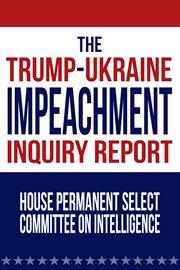Review by Publisher's Weekly Review
CNN legal analyst Honig debuts with a sharp-edged account of how former attorney general William Barr violated Justice Department norms to benefit President Trump, wage war against the "evils of secularism," and "implement extreme view of executive authority." Expressing regret for his initial positive comments about Barr's appointment in 2019, Honig accuses Barr of deliberately distorting the conclusions of the Mueller Report on Russian interference in the 2016 election, and intervening on behalf of Trump loyalists Michael Flynn and Roger Stone to overrule charging and sentencing decisions authorized by Justice Department lawyers. Honig also delves into Barr's controversial ouster of the interim U.S. Attorney for the Southern District of New York, Geoffrey Berman, whose office was reportedly investigating Rudy Giuliani's "business interests in Ukraine and other shady financial dealings." Throughout, Honig draws on his own career as a federal and state prosecutor to make clear the extent of Barr's violations, and he offers a list of useful reforms, including explicit limits on communications between the Justice Department and the White House. Though Honig doesn't break much new ground, this is a comprehensive indictment of one of the most controversial figures of the Trump administration. (July)
(c) Copyright PWxyz, LLC. All rights reserved
Review by Library Journal Review
A former federal and state prosecutor now serving as a CNN legal analyst, Honig argues that the two key qualities of a good prosecutor are credibility and independence--qualities that William Barr did not exhibit as an attorney general. With a 75,000-copy first printing.
(c) Copyright Library Journals LLC, a wholly owned subsidiary of Media Source, Inc. No redistribution permitted.
Review by Kirkus Book Review
A full-throated condemnation of the recently departed attorney general. If former Southern District of New York prosecutor Honig, now a CNN analyst, has any use for William Barr, you wouldn't know it from these barbed pages. For one thing, Barr has "never, never tried a single case, in the trenches, as a prosecutor." In that, he was like many in the Trump administration, lacking the credentials required to do the job. But Barr had numerous things in his favor, insofar as securing the gig was concerned. For example, "as a private citizen," he wrote his famous "audition memo," in which he questioned the legitimacy of the Mueller investigation and advocated executive powers so extensive that the president was on the verge of becoming a dictator. This ties in with Barr's virulent, theologically based fundamentalism, which, among other planks, militated against rights for gay people and other marginalized minorities. Barr politicized the Justice Department to become an instrument of power for Trump, even after his electoral loss in 2020. "As Trump cast about for some basis on which to contest the outcome," writes Honig, "Barr instructed prosecutors that they were now free to pursue election fraud cases even while certification of election results was still pending." The author prefaces his damning, convincing account by enumerating characteristics "that infected Barr's approach to his position as the nation's top prosecutor." He is "a liar" and "an eager political partisan" who "used the attorney general position to impose his own legal and philosophical views on how civil society ought to function." As for his surprise resignation just before Trump left office? Self-serving self-preservation, writes Honig, perhaps with a smattering of concern for legacy behind it. Even so, Barr went out the door having accelerated the schedule for the execution of federal prisoners, one more sign of his "thirst for power, fueled by a religious certainty in his duty and right to impose order on the world." A resounding excoriation of an unquestionably corrupt operator. Copyright (c) Kirkus Reviews, used with permission.
Copyright (c) Kirkus Reviews, used with permission.

